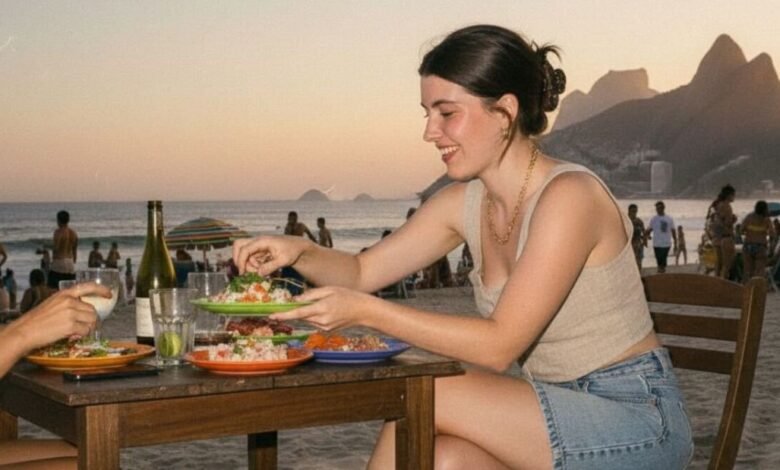Can’t Afford a Vacation? This AI App Sells You Fake Ones

▼ Summary
– People are using AI to create fake photos of themselves living luxurious lives as a form of personal escapism or manifestation.
– App developer Tim Wijaya found large online communities where middle-to-low income users share AI-generated images of luxury experiences they can’t afford.
– Multiple AI manifestation apps have emerged, such as Endless Summer, which generates fictional vacation photos from user selfies.
– Most AI manifestation apps fail to deliver on their promises, offering only text-based affirmations and generic AI images instead of personalized content.
– The author found the AI-generated vacation photos unconvincing and noted the apps quickly require payment to continue using their services.
For those feeling the pinch of daily life, a new wave of AI applications offers a surprising form of digital escapism by generating convincing fake vacation photos. Rather than chasing social media approval, many users turn to these tools to visualize and mentally inhabit a life of luxury they currently cannot afford, treating it as a personal form of therapy or a method for manifesting future goals.
The trend is particularly noticeable in online communities. After conducting research on how Indonesians use ChatGPT, app developer Tim Wijaya discovered numerous Facebook groups, some boasting up to 30,000 members, dedicated to sharing AI-crafted images of luxury experiences. These groups are largely populated by middle to low-income individuals from smaller cities, often earning less than $400 per month. Wijaya described the phenomenon as both sad and fascinating, noting that AI has become a gateway for people to experience lives that are likely beyond their financial reach.
This concept has now been productized. Laurent Del Rey, a product designer at Meta, recently launched a side project called Endless Summer. He describes the app as a social media tool for moments of burnout, allowing users to manifest the “soft life” they feel they deserve through fabricated vacation pictures of themselves.
A quick search through major app stores reveals a growing category of similar “AI manifestation” tools. You can find apps like “Manifest AI Coach: Dreams Made,” which pledges to create “vision backgrounds” to aid in goal visualization. Others, such as Manifestar AI and ManifestMe, offer to generate personalized visuals that supposedly align with a user’s “manifestation goals and energy.” The offerings don’t stop there; apps like “Manifest AI: Bye Broke Brain” promise to renew your mindset, while “Manifest AI: Affirmations” focuses on generating daily positive statements.
It is important to note that many of these applications fall short of their ambitious marketing claims. A hands-on test of several popular options, including “Manifest AI Coach: Dreams Made” and ManifestMe, revealed they primarily provided basic text-based affirmations. These were accompanied by a collection of oddly generic AI-generated stock imagery featuring goddess figures, sunburst patterns, and DNA helices, rather than the personalized visualizations advertised.
In contrast, the Endless Summer app delivered on its core promise. The process is straightforward: upload three personal photos, and the AI uses them as source material to place you in fictional vacation settings. The result was a set of images depicting a Tokyo cityscape, a casual scene in a New York-style bodega, complete with AI-generated text on product boxes, and an elegant outdoor dinner in Rio de Janeiro. While the likeness to the user wasn’t perfect, the overall aesthetic was flattering and convincingly luxurious.
The crucial question is whether viewing these AI-generated fantasies provides any genuine emotional uplift. The experience was more amusing than transformative, largely because the distinct, slightly artificial aesthetic constantly reminded the viewer that the scenes were fabricated. The effect might be different for someone who feels genuinely deprived of such experiences, unlike someone who can simply walk to a local bodega. Furthermore, the free trial is extremely limited, offering just three generated images. To continue, users are prompted to purchase packages, with options like $3.99 for 30 images, $17.99 for 150, or $34.99 for 300.
At those prices, the cost of a substantial package of fake photos begins to approach the price of a real-world experience. That $35 could contribute significantly toward an actual meal out or even cover a portion of a budget airline ticket to a new destination, raising the question of whether investing in digital dreams is more valuable than saving for tangible adventures.
(Source: The Verge)